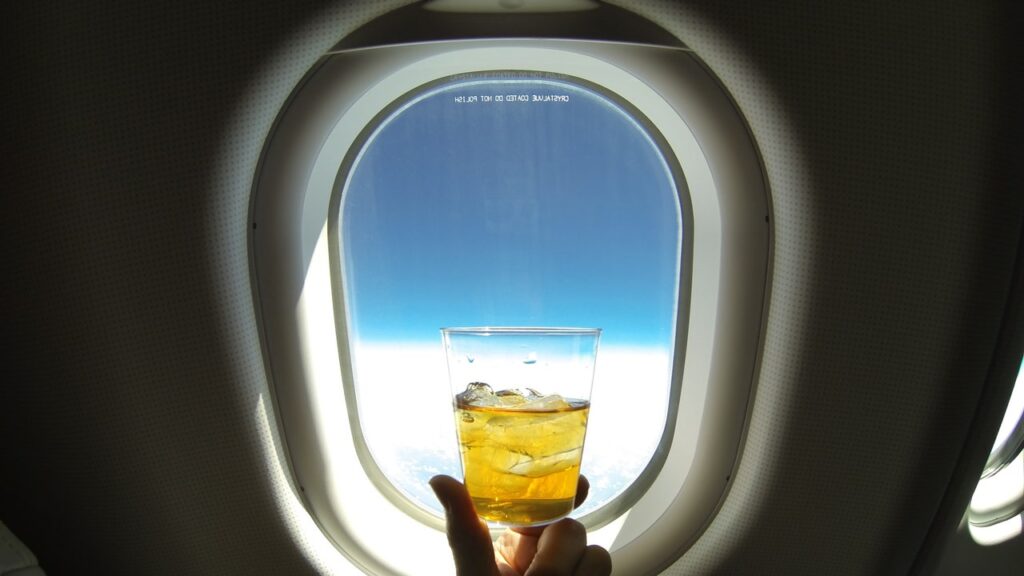Similarly, avoiding foods and drinks that cause dehydration can help. “Alcohol can be quite dehydrating, especially if you're not drinking enough water,” explains Stephanie Smith, women's health nutritionist at Agora Health. “If you do want to have some alcohol, opt for something like a Bloody Mary. Tomato juice is a source of electrolytes and is also rich in antioxidants.” These are some of the best cocktails to sip on a plane.
It's best to avoid coffee, as it's not only dehydrating but also harmful for people with flying anxiety. “Caffeine is a stimulant, so it stimulates the nervous system and brain, increasing the secretion of hormones like adrenaline,” says Stephanie. “This isn't necessarily a bad thing, but if you're anxious about flying, you might want to switch your caffeinated drinks (both before and during the flight) to decaf. Instead, try hot cacao, a matcha latte made with almond milk, herbal tea, or a decaf version of your favorite hot drink.”
It's also recommended to avoid salty foods: “Eating too much salt can worsen dehydration, which can lead to symptoms like headaches, fatigue and brain fog,” says Stephanie, “so it's best to choose snacks with no added salt and avoid high-salt meals before and during the flight.”
“Choose fresh, whole food-based meals at the airport, as ultra-processed foods are often high in salt,” she continues. This can be difficult on long flights, which require you to eat in-flight meals that are high in processed foods and salt. If possible, try to pack your own meals before traveling. Here are some guidelines on whether you can bring food on board. “In-flight meals are generally low in fiber (to prevent bloating) and nutrients, which often leaves travelers feeling sluggish,” says Stephanie.
“It's best to eat something light and easy to digest before a flight,” she continues. “Instead of a heavy meal high in carbohydrates, try eating something rich in antioxidants, including complex carbohydrates such as whole grains. Or, if you're planning on eating an in-flight meal, have a nutritious snack to go with it. Some snacks I recommend are fruit, nuts and seeds, dark chocolate, popcorn and oatcakes.”
What else should travelers do to aid digestion when flying?
Nutritionists Stephanie and Ellie shared some more tips to help your body cope with the side effects of flying.
Keep any supplements you normally take. Avoid drinks that cause dehydration, such as caffeine, alcohol and carbonated drinks. Prioritize hydration. Bring an empty water bottle to refill while traveling to ensure you stay hydrated. Aim to drink 1.5 litres of water each day, as this will help prevent bloating. Pack convenient, easy-to-carry snacks, such as dried fruit, nut and seed mixes. Diversify your diet while traveling.
Source link



